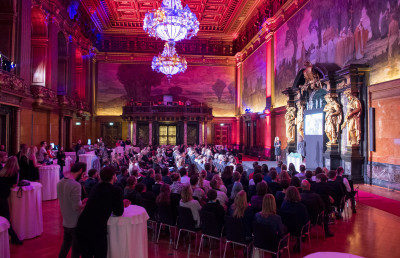PLAY16

In November, the city of Hamburg was a digital playground again. For the ninth time, the PLAY festival offered creative and unusual perspectives on digital games for its visitors.
This topic was “Let’s get physical – Game and Body”. Aspects like gender, sexuality, and boundaries between game and body were highlighted and discussed in workshops, impulses, and the exhibition. The technical development of virtual reality, such as cyberglasses like Oculus Rift, amplified the experience of games and redefined the role of corporeality in games.
During more than 100 various events, the visitors could touch, participate, and experience games in different ways in the city center of Hamburg. For example, there was a curated exhibition about Hamburg’s games culture in cooperation with the Museum für Kunst und Gewerbe, workshops in the Zentralbibliothek, the PLAY exhibition at the Kunsthaus Hamburg, performances in Gängeviertel, and the awarding of the Creative Gaming award in Hamburg’s townhall, to name only a few highlights.
“The Creative Gaming festival was a consistent and important institution concerning the constructive occupation and critical contention with digital games. The festival was an enrichment for political education, which took the importance of the medium seriously,” said Thomas Krüger, president of the Federal Agency for Civic Education, which was going to be a cooperation partner in 2016 again.
Creative Gaming Award
For the second time, the initiative Creative Gaming awarded the Creative Gaming award. Developers and artists from Europe were invited to submit their creative and innovative games. Thereby, they attained a chance not only to win the award but also to present their work at the PLAY exhibition to a large audience. The fact that the awarding ceremony took place at the townhall was seen as natural by Carola Veit, President of Hamburg Parliament: “Policy was made in a townhall: a creative process that demanded readiness, decision-making abilities, and active interventions. Hence, there were indeed parallels to Creative Gaming – however, politics was not a game. So, it was obvious to invite gamers into the townhall in order to exchange similarities and differences – and to honor the best ideas.”
